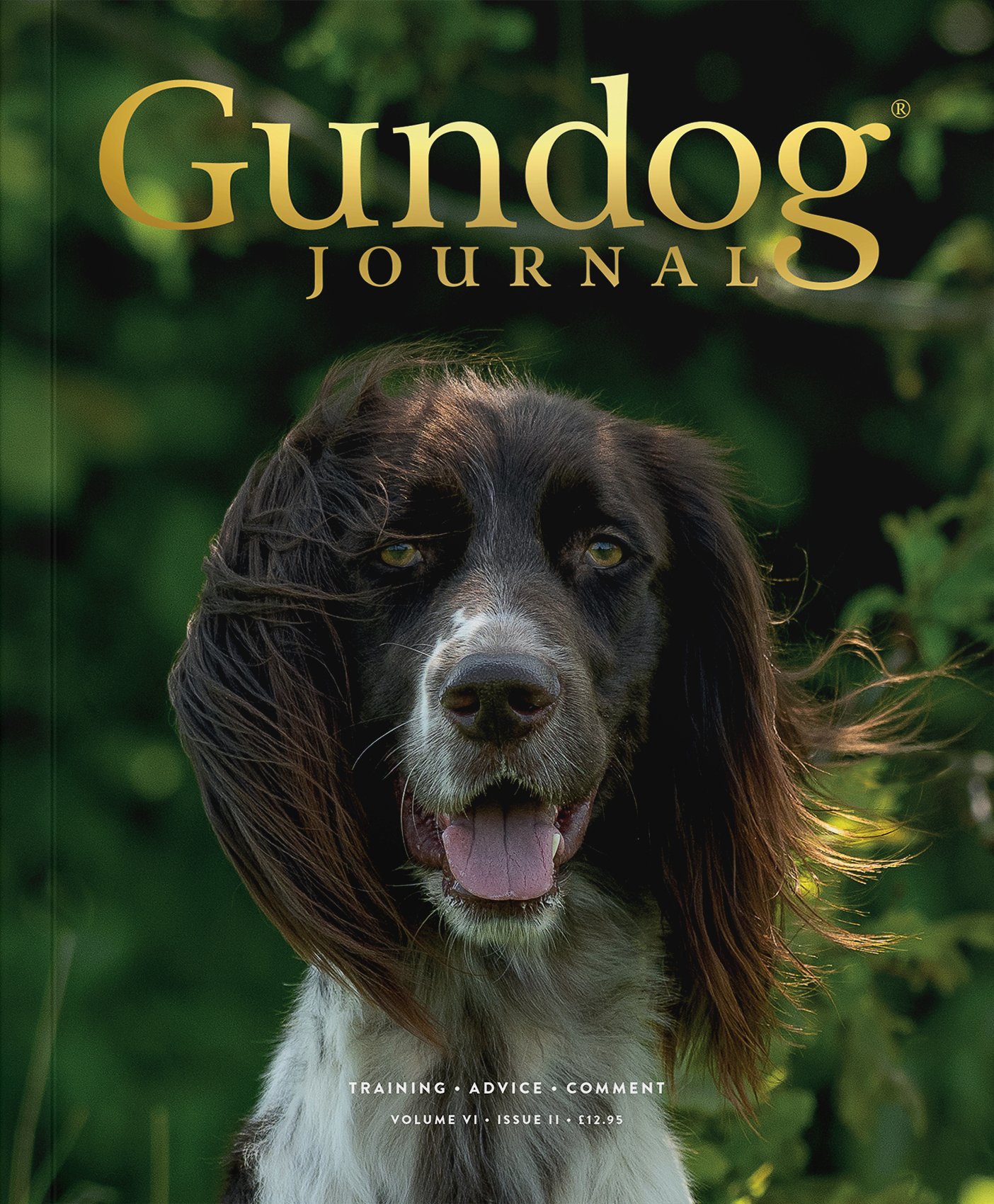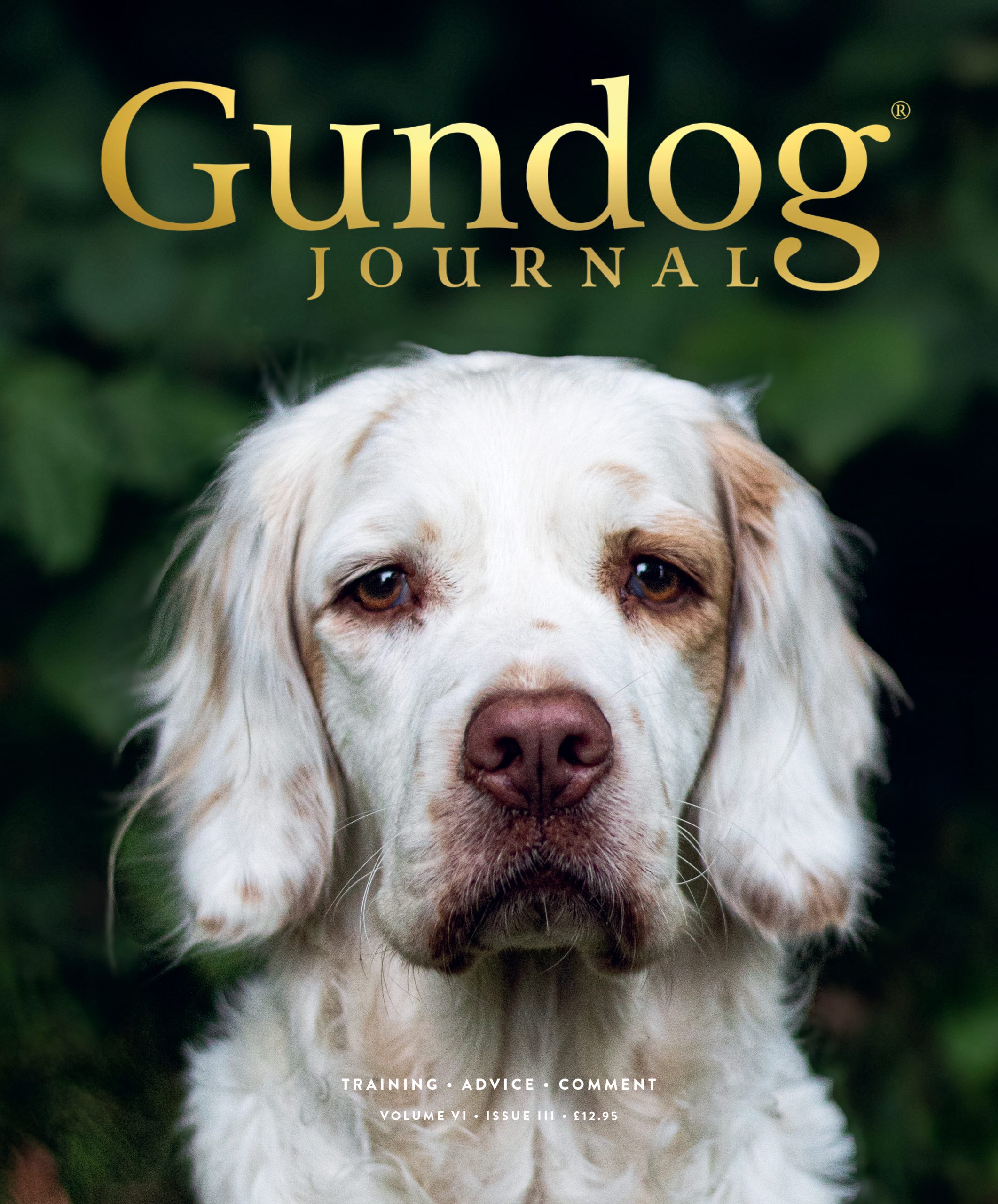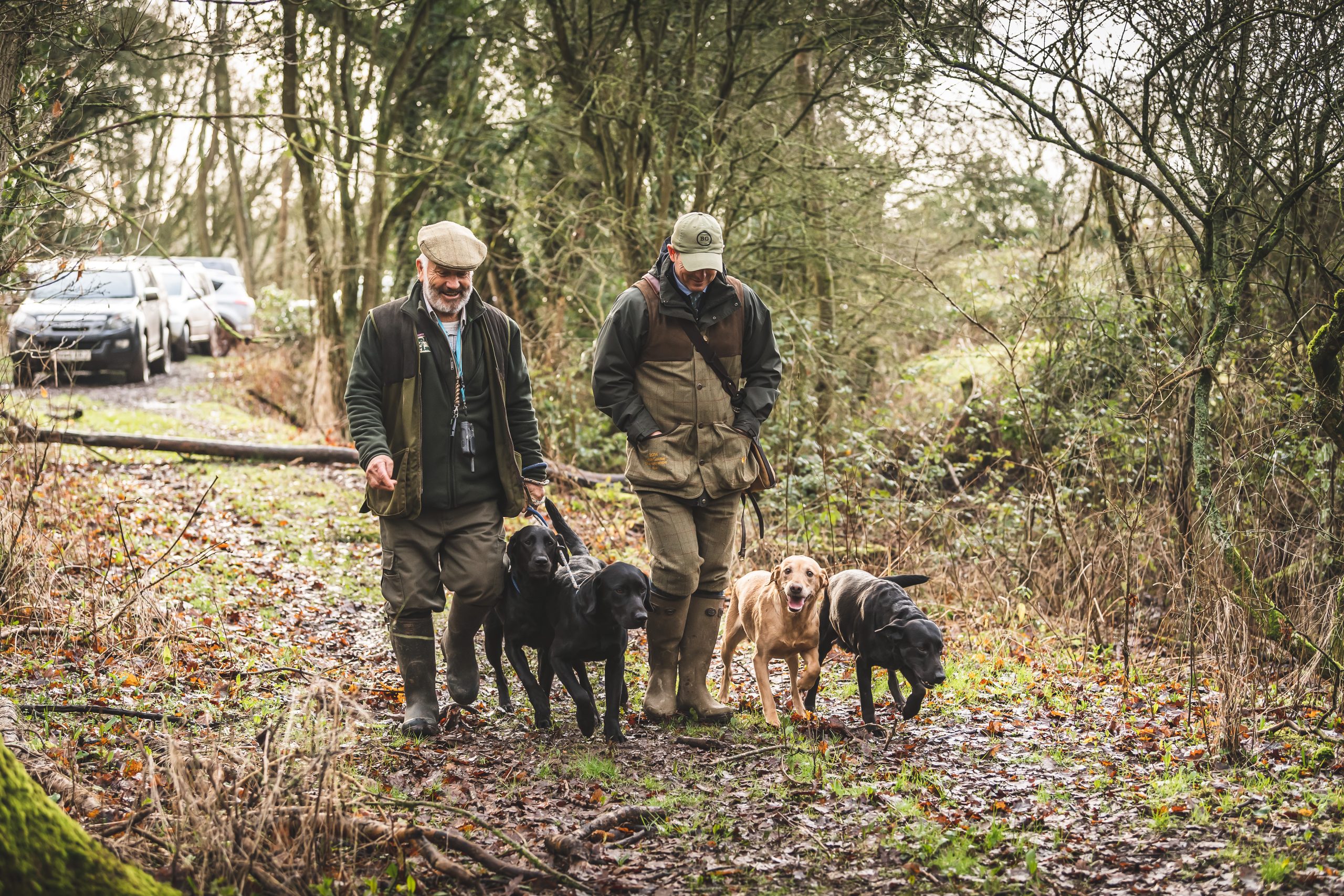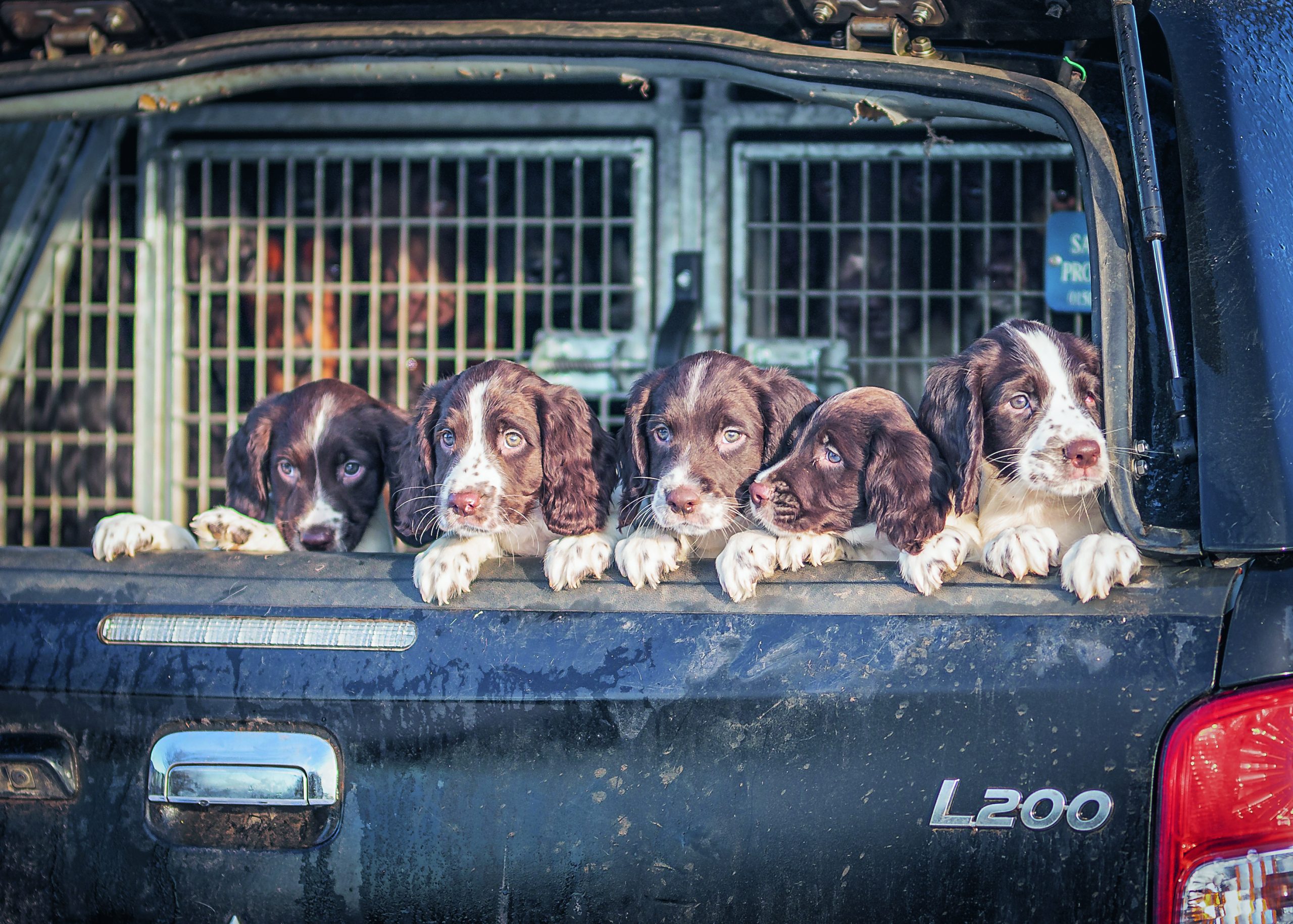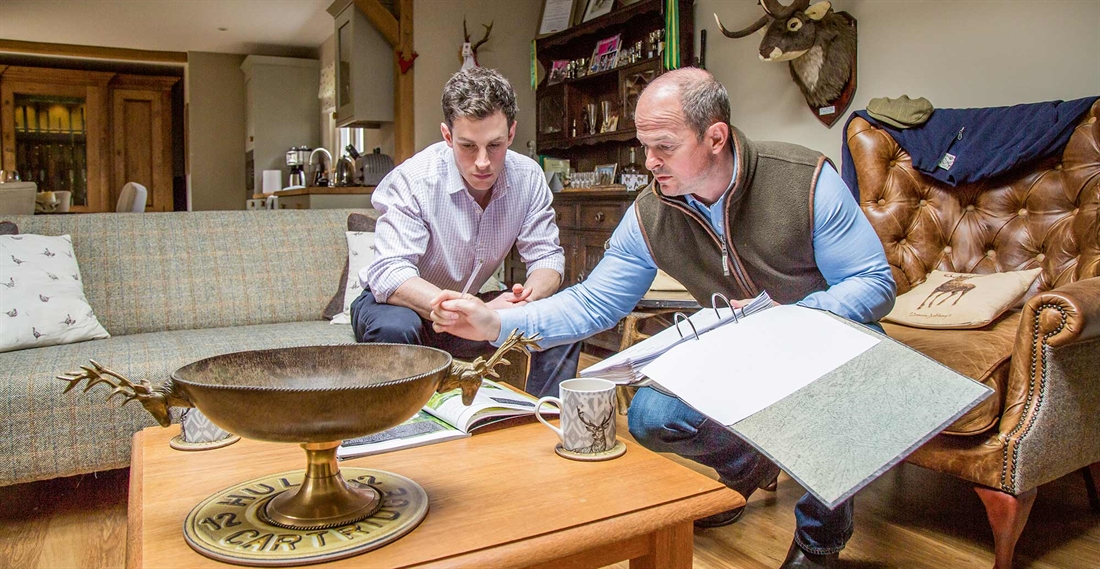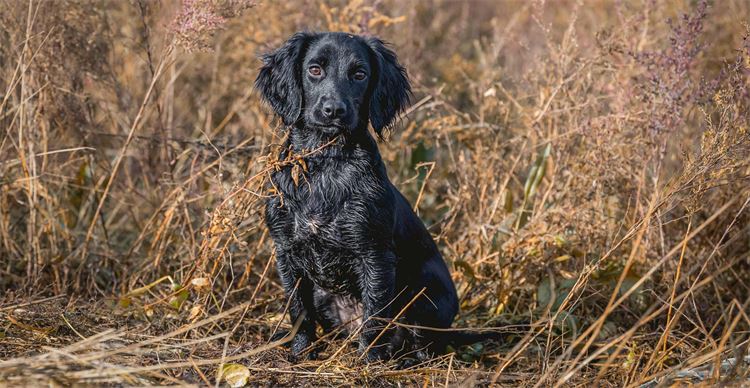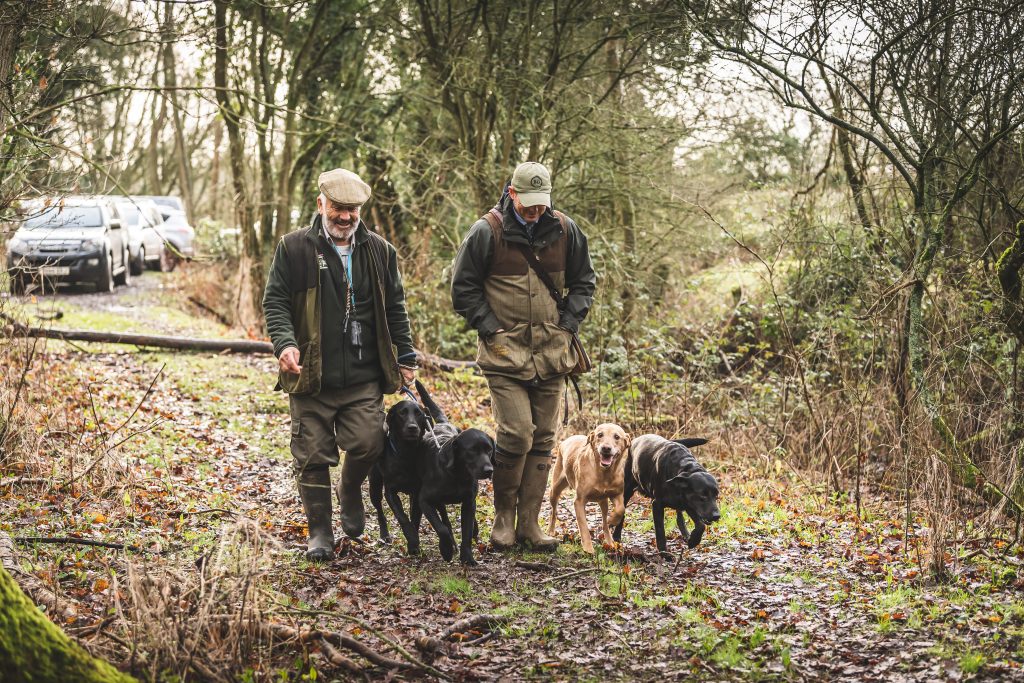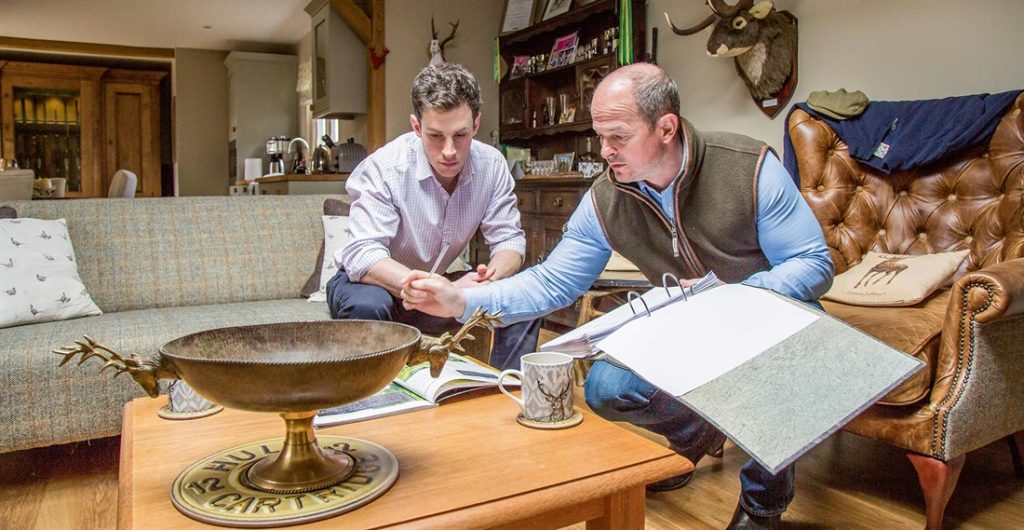What’s the going rate?
Just how much you should pay for a puppy is one of the most difficult questions because there are so many variables. But Patrice Fellows has some useful guidelines.
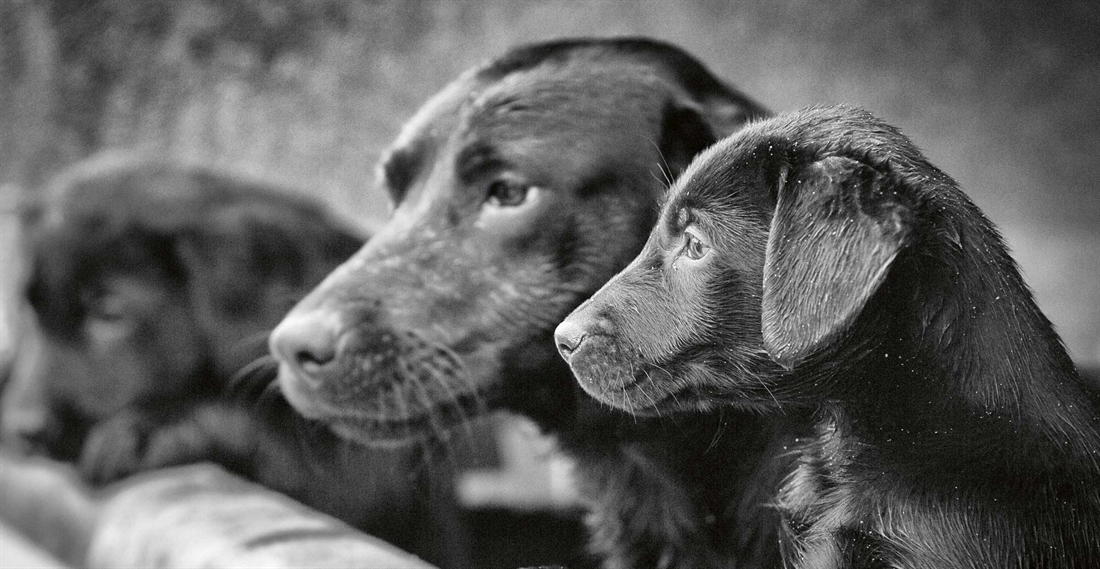
For anyone involved in shooting and gundogs, price isn’t the first thing that comes to mind when looking for a new pup. We’re more concerned with health, temperament and ability, and choosing the right breed for our own circumstances. That said, we all need to do our homework, and that includes getting an idea of going rates. How much should we pay for a good gundog puppy – and does this amount represent good value?
A wide range
Getting an idea of going rates is easier said than done. If you’re already involved in shooting or gundog competitions, you’ll have friends and contacts you can ask, and you’ll know what you’ve paid in the past for your own dogs. But for a newcomer to the gundog world, it isn’t so straightforward.
In the past classified sections of magazines were a good guide. But now gundog puppy adverts have moved online, where you’ll find a bewildering range of prices. I searched labrador litters on one of the most popular sites in the UK, Pets4Homes. Established 15 years ago, this website offers a free advertising service to anyone selling puppies – from individuals to responsible breeders to rescue centres. It accepts both unregistered litters (with no pedigree) and litters registered with the Kennel Club, as well as crossbreeds. I found labrador pups from unregistered litters for as low as £300, while ‘dilute’ or ‘silver’ labrador pups were listed as high as £3,500. Silver labradors are controversial because their colour is outside the breed standard, but litter parents may be registered with the Kennel Club. While these pups can’t be shown, theoretically they could compete at field trials and working tests.
Beware the profiteers
So what is the bottom line, in terms of price, for a well-bred labrador pup? There are many costs associated with mating two dogs and rearing a litter in a responsible manner. While a pup from an unregistered litter at £300 may seem like a bargain, there are greater risks involved and in the long run you may pay out more in higher vet fees from chronic conditions or genetic illness. Without any proven lines in the pedigree, there is also a greater chance that a pup may not have the right combination of working traits or carry some faults, like hard mouth or whining. Buying a pup from a registered litter with health-tested parents isn’t a foolproof guarantee of good health and working ability, but it considerably narrows the risks.
With that in mind, let’s pare down our search to KC registered litters of health-tested parents. Considering the costs of health tests, stud fees, quality food for mum and pups, vet bills, worming treatments, microchipping and more, a baseline price of about £750 to £800 for a pup of any gundog breed seems about right.
Responsible breeders – whether amateur or professional – do not typically place profit first. They’re more interested in continuing their bloodlines and keeping something for themselves from any given litter, aiming to cover costs associated with the mating and rearing of pups. Anyone selling a silver labrador pup for £3,500 is clearly interested in profit first – so walk, don’t run, to the nearest exit.
Establishing a guideline
Champdogs is another website that features puppy adverts for amateur breeders. Unlike Pets4Home, this site is limited to purebred dogs and encourages breeders to follow Kennel Club guidelines, although there are no guarantees about individual listings – buyers are encouraged to do their own homework and ask the right questions. I looked at the results for four of the most popular gundog breeds – labradors, springers, cockers and Hungarian vizslas. Puppy prices were not always included with the litter details, but there were enough to arrive at a ballpark figure for each breed.
Labradors were by far the most popular breed, with 71 litters listed. Most litters were from working parents but there were also some show-bred litters. Prices ranged from £850 to £1,200, with an average of about £1,000. Most parents had been health-tested and pedigrees showed a mixture of black and red (pet or working and field trial lines) for both dams and sires. Health tests were not uniform for all breeding pairs, so this is clearly something that buyers need to research before talking to breeders. The Kennel Club and breed club websites give detailed information about which tests are deemed critical.
There were only 14 litters listed for the Hungarian vizsla and, not surprisingly, the average price was slightly higher at £1,200. All of the parents were health tested and pedigrees showed a mixture of black and red, with red denoting show or full champions. As HPRs, vizslas are newer in Britain, so there are far fewer field trial champions around. Vizslas are widely used as all-rounders on the continent and in the US and have become the fifth most popular gundog in Britain. Much of the breeding stock is both shown and worked so show credentials are not unusual for working dogs.
Springers on the cheap?
There were 16 English springer spaniel listings, with an average price of around £750, cheaper than both labradors and vizslas. Pedigrees were again a mix of black and red, and many working pups were already de-dew clawed and docked, as well as wormed and microchipped. Some of the parents, however, were not health tested, especially dams. Interestingly, this didn’t affect the price – these pups were sold at the same price as those from health-tested parents.
Cocker spaniels, despite their smaller size, were more expensive than springers, with an average price of £900. There were only 19 litters listed, both show and work, so price may reflect higher demand. In recent years working cockers have become more fashionable, even in pet homes. In 2018 there were nearly 24,000 registrations of cocker spaniels, more than twice as many as springers, making them the second most popular gundog after the labrador.
You get what you pay for
I asked Ian Openshaw, one of Britain’s top gundog experts, for his view on the price of a well-bred gundog pup. For the past 30 years he and his wife Wendy have bred and competed with springers, cockers and labradors, making up over 100 field trial champions. They have also won the Any Variety Spaniel and Cocker Championships multiple times.
“If you buy the best,” he explains, “you’ll pay more, from £1,500 to £2,000 for a pup bred from two field trial champions. There are a lot of pups on the market bred from dams that have done all the health tests but have sat in kennels their whole lives, and breeders ask the same price for them. I think the bitch is even more important than the sire. If you want a really good pup, go to the best kennels and get a well-bred one. You don’t get a race horse from Blackpool Beach.”
Some perspective
Why do some gundogs cost more than others? “I no longer breed labradors, but I think the price has gone up because of so many health tests. There are a lot of commercially driven breeders who get all the health tests done, but don’t work their dogs. For a well-bred springer, be prepared to pay from £750 to £1,500, depending on the breeding. Cockers can cost a bit more and that’s because they’re more in demand: they’re great in the field, make good pets and come in more colours.”
Overall, do puppy prices reflect good value? “If you go to a reputable breeder whose dogs are proven workers, you get what you pay for. If you’re involved in shooting, you might pay as much as £3,000 for a good day’s shooting, £25,000 to join a syndicate and £10,000 for a gun. In comparison, £1,500 for a well-bred dog that will work and provide companionship for many years to come is pretty good value.”
Related Articles
Get the latest news delivered direct to your door
Subscribe to Gundog Journal
Unlock the full potential of your working dog with a subscription to Gundog Journal, the UK’s only dedicated magazine for gundog enthusiasts. Published bi-monthly, this authoritative resource delivers expert training advice, in-depth interviews with top trainers and veterinary guidance to help you nurture a stronger bond with your dog.
With stunning photography and thought-provoking content, Gundog Journal is your essential guide to understanding, training and celebrating your working dog.
Save 10% on shop price when you subscribe, with a choice of packages that work for you. Choose from Print & Digital or Digital only with each journal delivered directly to your door or via the app every other month, plus access to past issues with the digital back issue library.
